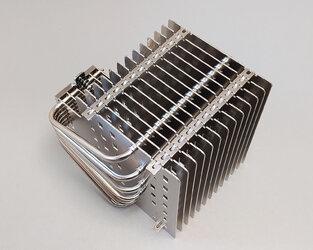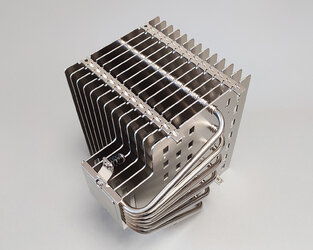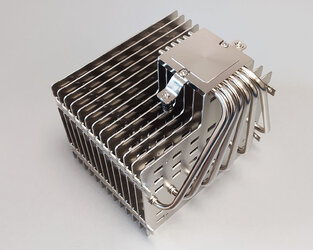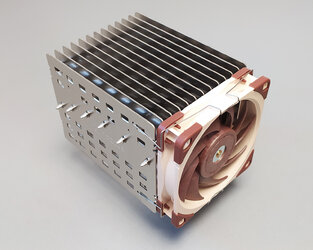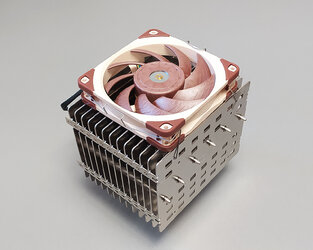Yes, the fan is sold as a separate product. You can use it or not ... or use some other type of cooler. The dedicated fan is a "quiet" version that is designed to stop while other series run at 300+ RPM so, in the end, it's a semi-passive option.
I assume that the optimal fan placement matters depends on the airflow in the case. On the Noctua website, are docs that are suggesting PC cases and other components. In short, there are not many cases that will work well with this cooler in the passive mode.
There is also a limit of ~120W but don't count it in TDP as for example Ryzen 5000 heats up more than Intel at the same expected TDP. This is why on the recommended CPU list, Ryzen 5900X is marked as not possible to work in a passive mode while 11900K is accepted but the clock will be around its base frequency. I assume that not much better will be with the 5800X as in my older tests, it wasn't much colder than the 5900X.
I guess I will test it with the 11700K and we will see how it works.
I'm only not sure if the advantage of having a passive CPU cooler, in reality, changes much. I mean graphics cards make more noise recently, the same for a fully passive PC you will need a fanless PSU, no HDDs that are louder than most CPU fans, etc. In any stronger PC, I can't hear the NH-D15 with 2 fans. So the NH-P1 seems like a good option for a lower power PC with IGP but who would buy it for a cheaper CPU with IGP and install it in a quite big PC case? Just some thoughts but they don't change the fact that I want to test it in some scenarios

Building a passive PC that can run 24/7 without any moving parts would be nice too.
I think that to keep it quite small, can use one of the cube ITX/mATX cases with mesh all around and support for CPU coolers up to 180-190mm. Maybe Jonsbo V8 or something from Thermaltake. Just an idea but not many are on the tested cases list.
